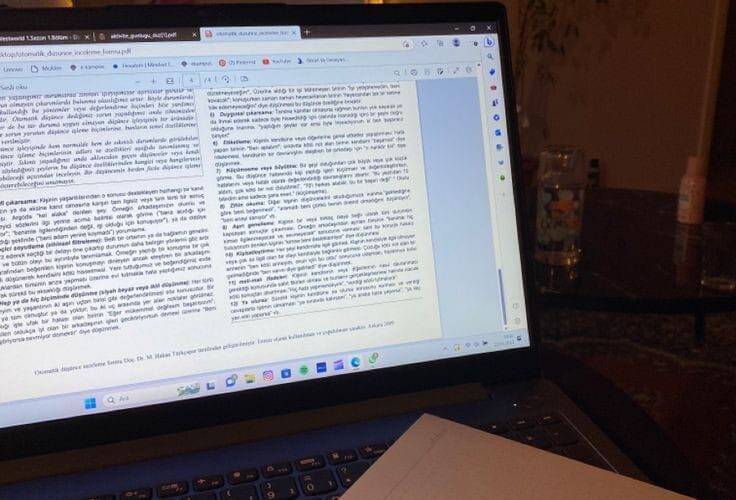Dear reader,
Let’s talk about grammar, the prim and proper part of the language. It’s your school teacher wagging a finger, the grammar police blowing a whistle, and the unwelcome party guest correcting your “me and my friends” to “my friends and I.” But when it comes to writing fiction, sometimes you’ve got to shove that grammar guide under the couch and let your sentences chill a little.
Breaking grammar rules is like jaywalking in fiction,you’re not supposed to do it, but sometimes it gets you where you need to go faster, and with way more swag.
Want your character to sound like an actual person instead of an audiobook narrator with a stick up their…you know? Break the rules! Think about Huck Finn saying, “You don’t know about me without you have read a book by the name of ‘The Adventures of Tom Sawyer.’” Double negatives, fragmented sentences, colloquialisms, Mark Twain knew his grammar, and he also knew when to give it the kick.
The grammar must fit the character. If your street kid talks like a Harvard scholar, there better be a damned good reason for it. Same if your Harvard scholar talks like a street kid. I think stream of consciousness is one of the most powerful ways to portray a character out there, and for that to work, you need to break grammatical rules because people don’t think in sentences with perfect grammar. As long as it:
Doesn’t distract
Works with the character
Works with the “world” (era/region)
Sure, that’s fine.
-
Pacing: Sometimes You Gotta Go Fast
Long, grammatically correct sentences can slow a story’s pace. Pacing is where grammar becomes less of a rulebook and more of a suggestion. If you’re writing a high-speed chase, a heated argument, or even a panic attack, long, properly punctuated sentences can slam the brakes on your narrative. Instead, you want short bursts, choppy lines, and a sense of urgency, you don’t want commas politely inserting pauses.
Proper grammar would be “I’m leaving, because I simply cannot tolerate your annoying interruptions any longer.”
Grammar rule-breaker: “I’m done. Leaving. You can’t,ugh!”
Which one hits harder? Exactly.
-
The Emotional Slap
Emotions don’t follow rules, so why should your sentences? Fragmented breaking sentences, run-ons, and one-word paragraphs can increase emotional intensity.
Example:
“They were gone. Just like that. Forever.”
This works way better than, “They were gone, and it happened suddenly, leaving me with the impression it was permanent.”
-
Poetic License, a.k.a. You’re the Boss
Sometimes, the “wrong” way sounds better. Maybe you’re aiming for rhythm, mood, or an unforgettable line that just doesn’t care about dangling participles or subject-verb agreement.
Example:
E.E. Cummings: “nobody, not even the rain, has such small hands.”
Grammar? Shmammar.
Why Breaking Grammar Rules Works?
Breaking grammar rules works because it feels human, natural, and real. People don’t think in perfect syntax, and dialogue certainly doesn’t adhere to blue print Manual standards. (If it does, your character might need some fun in their life.)
Rules are a scaffolding for language, but fiction? Fiction is the finished building. Do you leave the scaffolding up just because it’s technically correct? Of course not! You strip it away, paint the walls lime green, and maybe toss in a slide instead of stairs because why not?
When Not to Break Grammar Rules?
Before you throw all punctuation out the window and declare war on sentence structure, here’s the thing: You’ve got to know the rules to break them effectively. If your entire book is a chaotic mess of grammar errors, readers might think you’re not a creative rebel but just…bad at writing.
Also, some rules are sacred (looking at you, apostrophes). Mix up “its” and “it’s” or “your” and “you’re,” and the grammar police won’t just pull you over,they’ll tow the whole car.
Before you jump on board with breaking these or other rules, seriously pause and think about the rule:
Why is it considered a rule in the first place?
How could my writing be better by maintaining the rule?
Will breaking it cause my reader to misinterpret my writing?
Will breaking it pull my reader out of the immersive experience of my work?
Breaking grammar rules is like salting a dish,too little, and it’s bland. Too much, and it’s inedible. The key is balance. Know your work, then bend it to your will. Because at the end of the day, fiction isn’t about rules,it’s about telling a story that readers feel in their bones.
So go ahead. Split that infinitive. Start your sentence with “and.” End it with a preposition, if that’s where it belongs at. Your characters,and your readers,will thank you.



